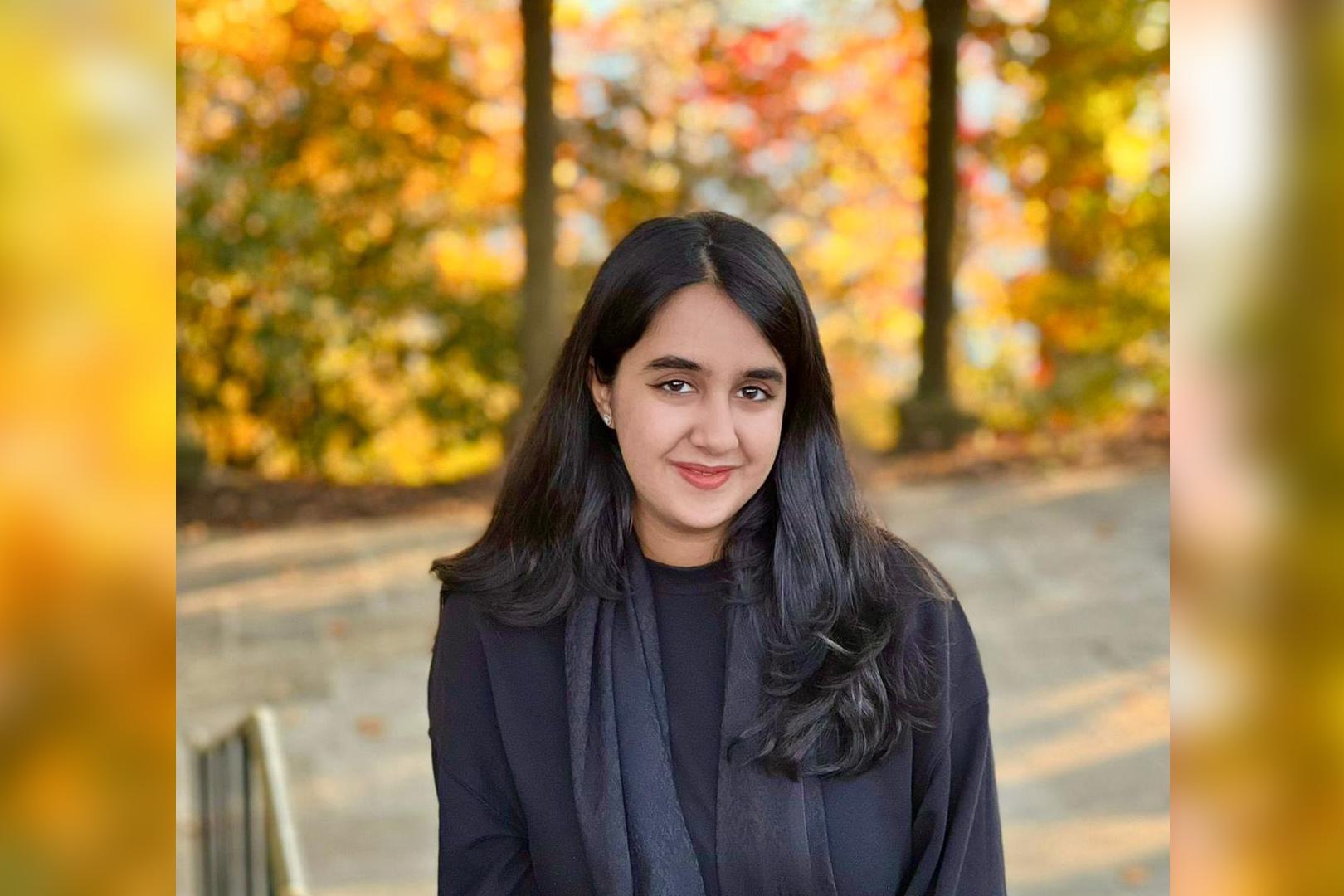“The truth is important,” says Nuzaina Khan ’23.
Khan has spent much of her time at Wellesley investigating how we perceive the truth—especially in places where it intersects with technology. An economics and psychology double major from Lahore, Pakistan, Khan serves as chief justice of the College and is writing her senior thesis on how preexisting biases play out online, affecting our ability to assess misinformation. For the past two years, Khan also has worked at MIT’s Human Cooperation Lab, developing surveys used to study and reduce misinformation on Google, Facebook, and Twitter.
In October, Khan received a big boost to her efforts: She was named a Rhodes Scholar for Pakistan. After graduating from Wellesley, Khan will study at Oxford University to investigate how misinformation is created and spread. Her long-term goal: “To stop the spread of misinformation in my country and in the world.”
Khan is interested not just in misinformation itself, but in the effect it has on people’s lives. “People are dying due to COVID-19 misinformation, democracy is under threat—in Pakistan and around the world,” she says. She believes misinformation online is largely to blame.
“I care about justice generally,” she says. “But the misinformation part is critical, because knowledge is power. And misinformation gets in the way of the just use of power.”
At Oxford, Khan plans to develop what she calls an “interdisciplinary toolkit” to answer questions about emerging technologies and develop frameworks that can strengthen internet governance to combat the spread of misinformation.
The interdisciplinary focus is key. “In order to make changes in laws and policies, we need to have data on our side,” she says. “We need to be able to make a case that shows a causal link between misinformation online and the erosion of democracy.”
Khan sought to develop a practical application for principled action even before she came to Wellesley. In high school, she designed an app that decreased police response time in child kidnapping cases in Pakistan and successfully pitched it to the government of Punjab.
But as a Rhodes scholar—with access to an international community—she can transform her work. Khan’s family placed a high value on education, and she has seen the impact Rhodes scholars have had in Pakistan, but she wasn’t sure what would happen when she applied for the highly competitive award through the Rhodes in Pakistan scholarship program. She was one of two recipients this year; in a surprise twist, the other is her childhood best friend. “That’s the best part,” Khan says. “I was really rooting for her!”
Khan credits her classmates and the faculty at Wellesley with much of her success. “They’ve pushed me to be curious, and to explore—to take new classes in disciplines I didn’t even know existed! And they’re also very kind.”
Khan is Wellesley’s 10th Rhodes Scholar. Most recently, Heather Long ’04 received the award in 2003 and Elizabeth “Betsy” Masiello ’03 received it in 2004.
